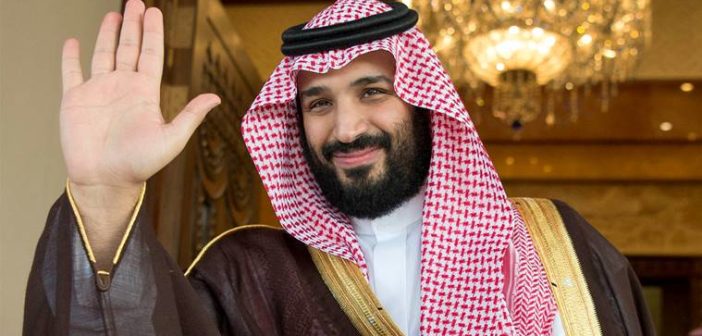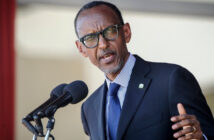Crown Prince Mohammed bin Salman continued his engineered reform of Saudi Arabia with the announcement on Monday that movie theatres will to open in the conservative kingdom next year, for the first time in more than 35 years.
It’s the latest stark reversal in a county where movie theaters were shut down in the 1980’s during a wave of ultraconservatism in the country. Many of Saudi Arabia’s clerics view Western movies and even Arabic films made in Egypt and Lebanon as sinful.
This is the latest reversal in decades of ultraconservative dogma Saudi Arabia championed by Crown Prince Mohammed bin Salman, 32, with support of his father, King Salman
The crown prince has pushed measures such as lifting a ban on women driving next year and bringing back concerts and other forms of entertainment to satiate the desires of the country’s majority young population as part of his so-called Vision 2030, a blueprint for the country that aims to boost local spending and create jobs amid sustained lower oil prices.
According to Monday’s announcement, a resolution was passed paving the way for licenses to be granted to commercial movie theatres, with the first cinemas expected to open in March 2018.
“It’s spectacular news. We are in a state of shock,” said Saudi actor and producer, Hisham Fageeh.
Fageeh starred in and co-produced the Saudi film “Barakah Meets Barakah” by director Mahmoud Sabbagh, which premiered at the Berlin International Film Festival in February. The movie, which has been called the kingdom’s first romantic comedy, tells the story of a civil servant who falls for a Saudi girl whose Instagram posts have made her a local celebrity.
“We are essentially pioneers because we all took risks to work in this industry,” he said. “We were super lucky because luck is always a factor of whether we make it or not.”
The government has backed a Saudi film festival that’s taken place for the past few years in the eastern city of Dhahran. This year, some 60 Saudi films were screened.
The film “Wadjda” made history in 2013 by becoming the first Academy Award entry for Saudi Arabia, though it wasn’t nominated for the Oscars. The movie follows the story of a 10-year-old girl who dreams of having a bicycle, just like boys have in her ultraconservative neighbourhood where men and women are strictly segregated and where boys and girls attend separate schools. The film was written and directed by Saudi female director Haifaa al-Mansour, who shot the film entirely in the kingdom.
The Saudi government says the opening of movie theatres will contribute more than 90 billion riyals ($24 billion) to the economy and create more than 30,000 jobs by 2030. The kingdom says there will be 300 cinemas with around 2,000 screens built in the country by 2030.




